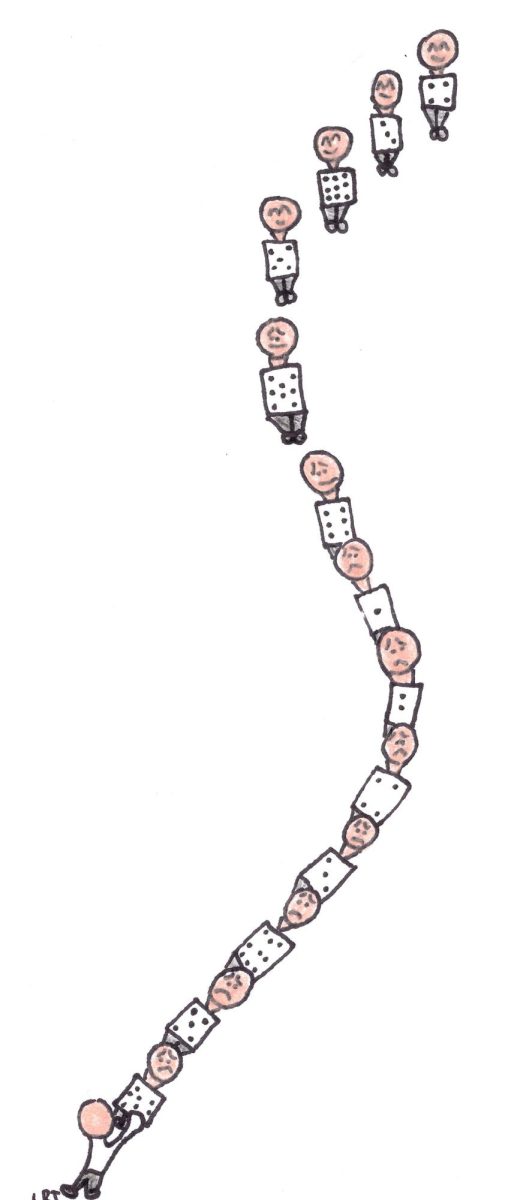One student’s silly joke of putting a book in the microwave resulted in the loss of all students use of the class microwave for generations to come. In the classroom, one’s personal academic experience is ultimately in their own hands. So when a student’s punishment expands to the entire classroom it is entirely unfair.
A class punishment would make sense if the offense had occurred on account of the entire class, like disrespectful actions with a substitute teacher, or the entirety of a class refusing to do a homework assignment. But in the instances where a handful of students, or one student alone ruins an opportunity for the entire class, they should be the only ones to blame for their wrongdoing.
For example, when a few students choose to cheat on an exam or test and teachers decide to revoke a curve for grading, the entire class suffers from individual bad choices. Although the opportunity for a curve is a grace that teachers can provide at their discretion, in these situations, those involved in cheating should be the ones to suffer the consequences alone.
This situation is amplified when it happens in a different period of the course. In the classroom, students can not account for all of their peers’ actions, and therefore should not be held at fault for an unexpected behavior that they have not taken part in. Why should the fate of a person’s grade lie in the hands of another student.
The threat of a whole-class punishment also results in useless worry. In one instance there was a math teacher who had prepared students to take the test without using notes as a result of cheating, but on the date of the test, they were able to use it. Although students appreciated the opportunity to eventually use the notes, students were so stressed for a test without notes, to the point where the extra “help” was not helpful.
Overall, teachers should not punish an entire class for one or a few people’s actions.
Categories:
Staff editorial: actions affect everyone
Natasha Phanthavong, Editor-in-Chief
April 25, 2024
0
More to Discover
About the Contributor
Natasha Phanthavong, Editor-in-Chief
My favorite sections to write for are Feature and Pop Culture. Outside of the Iliad, I love to act, watch rom-coms, and go thrifting. My favorite quote is from Little Women. “Life and love are very precious when both are in full bloom,” by Louisa May Alcott. In the future, I will be a star. (Class of 2024)


